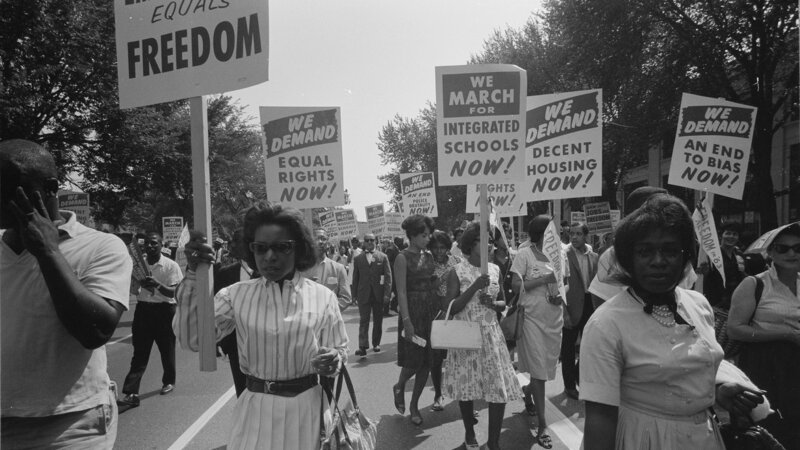Posted on Feb 1, 2022
Here's the story behind Black History Month — and why it's celebrated in February
318
7
1
6
6
0
Posted >1 y ago
Responses: 1
PO1 William "Chip" Nagel
...""There is no American history without African American history," said Sara Clarke Kaplan, executive director of the Antiracist Research & Policy Center at American University in Washington, D.C. The Black experience, she said, is embedded in "everything we think of as 'American history.' "
First, there was Negro History Week
Critics have long argued that Black history should be taught and celebrated year-round, not just during one month each year.
It was Carter G. Woodson, the "father of Black history," who first set out in 1926 to designate a time to promote and educate people about Black history and culture, according to W. Marvin Dulaney. He is a historian and the president of the Association for the Study of African American Life and History (ASALH).
Woodson envisioned a weeklong celebration to encourage the coordinated teaching of Black history in public schools. He designated the second week of February as Negro History Week and galvanized fellow historians through the Association for the Study of Negro Life and History, which he founded in 1915. (ASNLH later became ASALH.)
The idea wasn't to place limitations but really to focus and broaden the nation's consciousness.
Carter G. Woodson (1875-1950) was an American historian, a scholar and the founder of the Association for the Study of Negro Life and History. Woodson was instrumental in launching Negro History Week in 1926.
"Woodson's goal from the very beginning was to make the celebration of Black history in the field of history a 'serious area of study,' " said Albert Broussard, a professor of Afro-American history at Texas A&M University.
The idea eventually grew in acceptance, and by the late 1960s, Negro History Week had evolved into what is now known as Black History Month. Protests around racial injustice, inequality and anti-imperialism that were occurring in many parts of the U.S. were pivotal to the change.
Colleges and universities also began to hold commemorations, with Kent State University being one of the first, according to Kaplan.
Fifty years after the first celebrations, President Gerald R. Ford officially recognized Black History Month during the country's 1976 bicentennial. Ford called upon Americans to "seize the opportunity to honor the too-often neglected accomplishments of Black Americans in every area of endeavor throughout our history," History.com reports."...
...""There is no American history without African American history," said Sara Clarke Kaplan, executive director of the Antiracist Research & Policy Center at American University in Washington, D.C. The Black experience, she said, is embedded in "everything we think of as 'American history.' "
First, there was Negro History Week
Critics have long argued that Black history should be taught and celebrated year-round, not just during one month each year.
It was Carter G. Woodson, the "father of Black history," who first set out in 1926 to designate a time to promote and educate people about Black history and culture, according to W. Marvin Dulaney. He is a historian and the president of the Association for the Study of African American Life and History (ASALH).
Woodson envisioned a weeklong celebration to encourage the coordinated teaching of Black history in public schools. He designated the second week of February as Negro History Week and galvanized fellow historians through the Association for the Study of Negro Life and History, which he founded in 1915. (ASNLH later became ASALH.)
The idea wasn't to place limitations but really to focus and broaden the nation's consciousness.
Carter G. Woodson (1875-1950) was an American historian, a scholar and the founder of the Association for the Study of Negro Life and History. Woodson was instrumental in launching Negro History Week in 1926.
"Woodson's goal from the very beginning was to make the celebration of Black history in the field of history a 'serious area of study,' " said Albert Broussard, a professor of Afro-American history at Texas A&M University.
The idea eventually grew in acceptance, and by the late 1960s, Negro History Week had evolved into what is now known as Black History Month. Protests around racial injustice, inequality and anti-imperialism that were occurring in many parts of the U.S. were pivotal to the change.
Colleges and universities also began to hold commemorations, with Kent State University being one of the first, according to Kaplan.
Fifty years after the first celebrations, President Gerald R. Ford officially recognized Black History Month during the country's 1976 bicentennial. Ford called upon Americans to "seize the opportunity to honor the too-often neglected accomplishments of Black Americans in every area of endeavor throughout our history," History.com reports."...
(1)
(0)
Read This Next



 American History
American History Racism
Racism Slavery
Slavery


